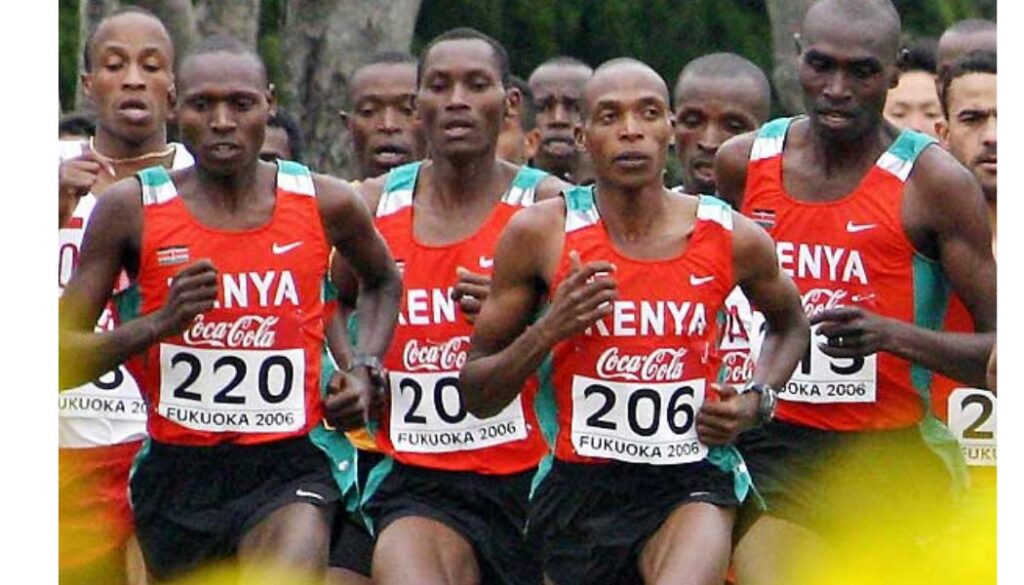Anti-Doping Agency (AIU) explains why Kenyan athletes are facing severe bans for doping violations

Athletics Integrity Unit (AIU) has come out to reveal one of the key mistakes that athletes, particularly those from Kenya, make, which leads to lengthy and potentially career-ending bans.
The Athletics Integrity Unit (AIU) has come out to reveal one of the key mistakes that athletes, particularly those from Kenya, make, which leads to lengthy and potentially career-ending bans.
In a statement on Sunday, July 27, the anti-doping body clarified that, unlike popular belief, not all violations are accidental. According to the AIU, not all; in many instances where complex banned substances are involved, it is usually deliberate, leading to more severe sanctions.
The AIU cited the case of marathoner Emmaculate Anyango Achol, who was slapped with a six-year ban just as she was competing at the highest level. Anyango, who is the world’s second-fastest female athlete in 10,000 km races, tested positive for testosterone.
According to the AIU, the consistent presence of a banned substance in Achol’s system for a prolonged period spanning four months was a key indicator that her actions were not accidental but rather part of a deliberate doping regimen.
President Ruto breaks silence on free education budget cuts
DP Kindiki crowned Luo elder, named Odhiambo
16-year-old boy confesses to killing his mother in Molo for not revealing his biological father
Activist Hanifa Adan escapes abduction attempt in Nairobi on Saturday night
”Her significant sanction reflects Aggravating Circumstances under the World Athletics Anti-Doping Rules (ADR), Rule 10.4. Her samples revealed the presence of multiple Prohibited Substances, collected consistently over a four-month period, indicating repeated instances of doping,” AIU explained.
Achol was effectively handed a six-year ineligibility period, which was to begin on September 26, 2024, ruling her out of competition for the foreseeable future. Her results from February 3, 2024, onwards were also disqualified, meaning she had to forfeit medals, titles and prize money earned during that time.
Another mistake the AIU highlighted using Achol as an example was the fact that many athletes fail to present evidence or sign an admission form, which can help reduce the penalty as per the World Athletics Anti-Doping Rules (ADR).
If an athlete fails to demonstrate that the violations were unintentional, the AIU is usually compelled to issue the maximum sanction.
”Cases like this one remind us why tougher sanctions truly matter, reflecting the seriousness of the doping method, not just the presence of the substance,” the AIU added.
In July alone, several Kenyan athletes have been hit with bans, putting their careers at risk. Arguably, the most sensational doping ban came on July 17, when marathon record holder Ruth Chepng’etich was suspended after her samples collected on March 14 showed the presence of Hydrochlorothiazide (HCTZ).
AIU Head Brett Clothier confirmed that Chepng’etich was later notified of the results and interviewed in person by the unit on April 16, where she complied with requests regarding the investigation.
In a separate incident, Ronald Kimeli Kurgat, the winner of the 2024 Standard Chartered Nairobi Marathon, where he bagged a KSh 2 million prize, was banned for six years after testing positive for a banned substance twice.
Francis Atwoli calls on Raila Odinga to eject Sifuna from ODM
Amnesty International calls for probe against Ruto and Suluhu over rising abductions
KMPDU slams government closure of Chiromo Clinic after CEO Susan Njoki’s murder
Missing Activist Mwabili Mwagodi found dumped in Kwale County
Follow us







